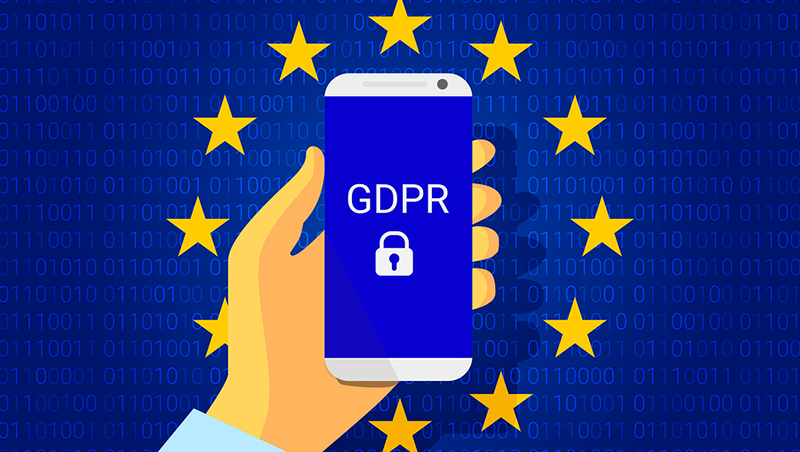IT users' security awareness "out of date"
Half of us still think most malware spreads by email.

IT users' security know-how is out of date, and poses a risk to their personal data and to their employers.
Furthermore, myths surrounding how malware spreads is leaving organisations vulnerable to hacking and cyber crime, according to international research.
According to G Data's 2011 security survey, 53 per cent of UK computer users believe that most malware spreads via email, whereas in practice, links on websites are now more a common source of malware than infected attachments.
Almost half of UK respondents also thought that peer to peer and "torrent" sites were the most risky, and one in three believed that pornographic website were the most likely to lead to infections.
Globally, more than nine out of ten of those surveyed believed that they would notice a malware infection on their PCs, but, according to G Data, most malware now has no visible effect.
Malware writers prefer to keep their software hidden from view, to maximise the chances of stealing sensitive data from online banking or shopping transactions, or from emails.
"Cyber criminals design, sell and make use of malware that enables them to take control of PCs' computing powers in such a way that users do not notice the infection," said Eddy Willems, G Data's security evangelist.
Get the ITPro daily newsletter
Sign up today and you will receive a free copy of our Future Focus 2025 report - the leading guidance on AI, cybersecurity and other IT challenges as per 700+ senior executives
The report's authors also pointed out that, whilst consumers and business IT users are wary of malware spread by email, they are far less cautious when it comes to their use of social networking sites. A third of respondents trust links on social networking sites, and one in five click on links regardless of whether they know, or trust, the source.
And, despite the growing threat level online, 50 per cent of consumers rely on free anti-virus software alone, and do not use other protective measures such as firewalls. And 11 per cent of users install no security software at all, G Data found.
G Data surveyed 16,000 internet users between February and March 2011, across 11 countries including Germany, France, the UK and the United States.
In the UK, internet service provider Virgin Media recently had to write to customers with infected PCs after the Serious Organised Crime Agency spotted a spate of SpyEye infections.
-
 Bigger salaries, more burnout: Is the CISO role in crisis?
Bigger salaries, more burnout: Is the CISO role in crisis?In-depth CISOs are more stressed than ever before – but why is this and what can be done?
By Kate O'Flaherty Published
-
 Cheap cyber crime kits can be bought on the dark web for less than $25
Cheap cyber crime kits can be bought on the dark web for less than $25News Research from NordVPN shows phishing kits are now widely available on the dark web and via messaging apps like Telegram, and are often selling for less than $25.
By Emma Woollacott Published
-
 What is your digital footprint?
What is your digital footprint?In-depth Your digital footprint is always growing – so we explore how you can keep it under control
By Maggie Holland Last updated
-
 Nine top GDPR tips for email marketing strategies
Nine top GDPR tips for email marketing strategiesIn-depth It's not all doom and gloom – here's how you can make GDPR work for you
By Zach Cooper Last updated
-
 Why GDPR creates a "vicious circle" for marketers
Why GDPR creates a "vicious circle" for marketersNews Customers will control the forthcoming trust economy, predicts Aprimo
By Rene Millman Published
-
 Facebook will allow adverts to target users based on beliefs
Facebook will allow adverts to target users based on beliefsNews The company will also give users opt-ins to use facial recognition to prevent impersonation
By Rabbil Sikdar Published
-
 Tim Berners-Lee: How we can win back the web
Tim Berners-Lee: How we can win back the webNews The public must reject misinformation and keep control of their own data
By Clare Hopping Published
-
 Social network users play fast and loose with data privacy
Social network users play fast and loose with data privacyNews Over-sharing puts users at risk of identity theft and fraud
By Jane McCallion Published
-
 UK government Facebook data requests grow 71%
UK government Facebook data requests grow 71%News Only US and India ask for more user details from the social network
By Adam Shepherd Published
-
 Virginia shooting - don't open that link!
Virginia shooting - don't open that link!Opinion Scammers and cyber criminals love to capitalise on tragedy, and we can't help but click
By Jane McCallion Published